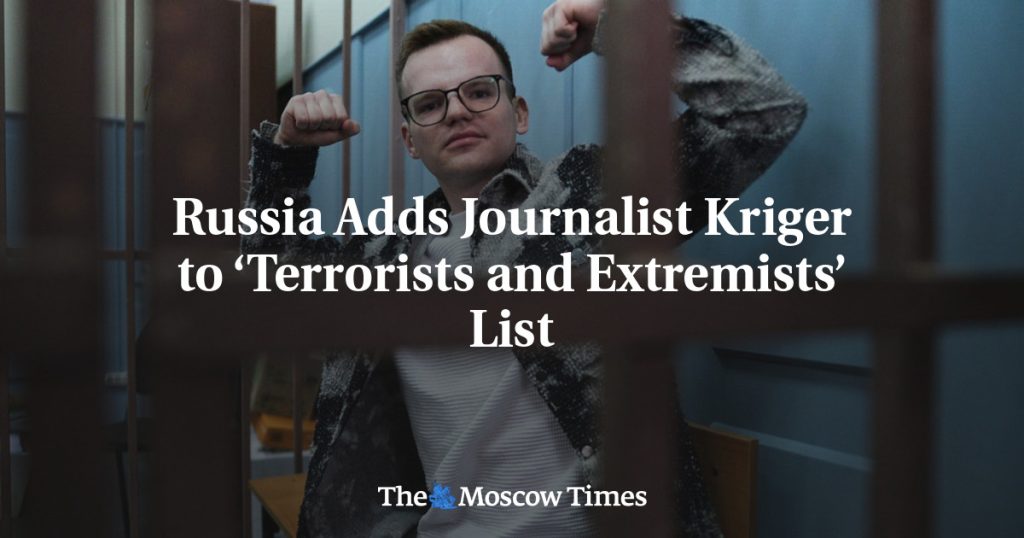Russian journalist Artyom Kriger has been added to the state financial watchdog Rosfinmonitoring’s list of “terrorists and extremists,” as reported by his employer SOTAvision. Kriger, 23, was arrested on charges related to the “extremism” case against late Kremlin critic Alexei Navalny. He has been accused of participating in an extremist community and has been placed in pre-trial detention until Aug. 18. Russian authorities have labeled Navalny’s activist network, including the disbanded Anti-Corruption Foundation (FBK), as “extremist,” putting employees, volunteers, and supporters at risk of criminal prosecution.
Kriger could face up to six years in prison if he is found guilty of participating in an “extremist” organization. Another SOTAvision journalist, Antonina Favorskaya, was also arrested in March on the same charges. She was accused of collecting material, preparing, and editing videos for FBK and was placed in pre-trial detention until Aug. 3. SOTAvision has vehemently denied the accusations against Kriger and Favorskaya, stating that the journalists never worked for Navalny’s organizations. The arrests of these journalists highlight the challenges faced by independent media outlets in Russia and the risks associated with reporting on sensitive political issues.
The designation of Navalny’s activist network as “extremist” has had far-reaching consequences, with employees, volunteers, and supporters being targeted for their association with the organization. The crackdown on dissenting voices in Russia has intensified in recent years, with the government using broad anti-extremism laws to silence critics and stifle independent media. Journalists like Kriger and Favorskaya have found themselves caught in the crosshairs of this repressive environment, facing serious criminal charges for their reporting on controversial topics.
The case of Kriger and Favorskaya underscores the broader challenges faced by journalists in Russia, where press freedom is increasingly under threat. Independent media outlets are routinely targeted by the government, with journalists being subjected to harassment, intimidation, and legal action for their reporting. The use of anti-extremism laws to silence dissenting voices and criminalize legitimate journalistic activities is a worrying trend that has serious implications for freedom of expression in the country.
The international community has condemned the Russian government’s crackdown on independent media and freedom of expression. Human rights organizations have called for the release of journalists like Kriger and Favorskaya, urging the Russian authorities to respect press freedom and uphold the rights of journalists to report without fear of reprisal. The targeting of journalists for their reporting on sensitive political issues undermines democracy and the rule of law, and poses a threat to the fundamental human right of freedom of expression.
As Kriger and Favorskaya await trial, their cases serve as a stark reminder of the risks faced by journalists in Russia who dare to speak out against the government and hold those in power to account. The international community must continue to advocate for the protection of press freedom and the rights of journalists to report independently and without fear of persecution. The plight of Kriger, Favorskaya, and other journalists in Russia highlights the urgent need for concrete action to safeguard freedom of expression and ensure that journalists can carry out their important work without fear of reprisal.


